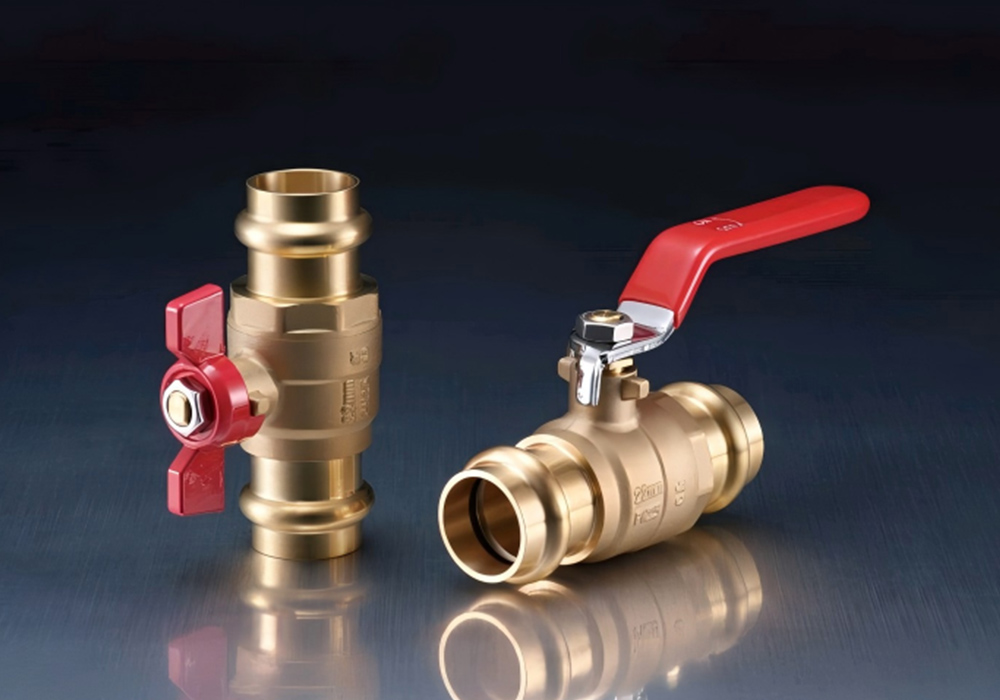2025-11-07
China brass mini ball valves factory are compact valves commonly used in residential plumbing, irrigation systems, and small-scale industrial applications. They are designed to control the flow of fluids efficiently through a simple rotating ball mechanism. While these valves are durable, they are not maintenance-free. Over time, residues, debris, or scale buildup can affect their performance.

1. Signs of Reduced Flow
1.1 Slower Fluid Movement
One of the indicators that a brass mini ball valve requires cleaning is a noticeable reduction in fluid flow. Sediments, mineral deposits, or rust particles can accumulate inside the valve or along the ball and seat surfaces, restricting movement. For instance, in a home water supply line, homeowners may observe that faucets or irrigation systems deliver water more slowly than usual. This reduction suggests that the valve may be partially obstructed.
1.2 Inconsistent Flow
In addition to slower flow, inconsistency in fluid delivery can indicate buildup within the valve. The presence of small debris can cause the ball to rotate unevenly, fluctuating pressure or intermittent flow. In agricultural drip irrigation systems, inconsistent water distribution to plants may be traced back to clogged brass mini ball valves along the line.
2. Signs of Leakage
2.1 External Leakage
External leakage around the valve body or handle can be a signal that cleaning and inspection are needed. Debris or mineral buildup can prevent the ball from forming a tight seal with the valve seat. Over time, this leads to minor leaks, which, if left unchecked, can cause water damage or reduce system efficiency.
2.2 Internal Leakage
Even if there is no visible external leak, internal leakage can occur when the ball does not fully seat. In pressurized systems, fluid may flow backward or bypass the intended flow path. In residential plumbing, this could manifest as dripping faucets or reduced water pressure despite the valve being fully closed. Cleaning the valve can remove the obstructing material and restore proper sealing.
3. Signs of Stiff Operation
3.1 Difficulty in Turning the Handle
Another indicator that a brass mini ball valve needs attention is increased resistance when operating the handle. Scale, rust, or dirt particles can accumulate at the pivot points or around the ball. This friction makes it harder to rotate the valve, requiring more effort to open or close it fully. For example, garden hose valves left idle during winter may stiffen due to sediment deposits, signaling the need for cleaning before the next season.
3.2 Noise During Operation
Sometimes, debris inside the valve can produce unusual sounds, such as scraping or rattling, when the handle is turned. These noises often indicate foreign material interfering with the ball movement. Regular inspection and cleaning can prevent further wear and maintain smoother operation.
4. Environmental and Usage Factors
4.1 Water Quality
The frequency of cleaning is influenced by water quality. Hard water, which contains higher concentrations of calcium and magnesium, tends to leave mineral deposits more quickly. Brass mini ball valves in such environments may need cleaning more frequently than those in areas with soft water.
4.2 Operational Frequency
Valves that are used frequently may accumulate less debris than valves left closed for extended periods, which can collect sediment over time. Seasonal equipment, such as irrigation valves in gardens or pools, may require cleaning before each operational season to ensure performance.
4.3 Exposure to Particulates
Valves in environments with high particulate matter, such as construction sites or industrial applications, are more prone to blockage and require more regular inspection and cleaning.